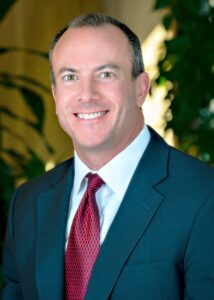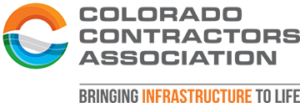In the Arena Fighting for Members: Tony Milo, Colorado Contractors Association
When we asked Tony Milo, executive director of the Colorado Contractors Association, to describe his responsibilities and how he gets everything done, a few key words kept surfacing: Fortunate. Lucky. Thankful. Successful.
All of these words depict an association professional who found his calling early on and works hard for the benefit of as many members as possible. Tony shares how he creates change for construction contractors in Colorado and beyond by being an active listener and relying upon his team to manage multiple projects at once. Read on for his candid take on the challenges and successes of association life.
Association Adviser: You started out with a bachelor’s degree in international relations, but you quickly entered the infrastructure construction industry. What motivated you to work in infrastructure?

Tony Milo: My first job out of college way back in 1987 was with the Michigan Manufacturers Association as assistant director of communications. It was there that I got a taste of the importance of infrastructure to the business community and overall quality of life.
My next job was where I really found my home: representing infrastructure contractors. That job was at the Michigan Asphalt Paving Association. I fell in love with the infrastructure construction industry and the people who bring it all to life.
I’ve been incredibly fortunate to represent the contractors who build our roads and bridges, airport runways, transit systems, water and wastewater facilities. I’ve found this group of professionals to be so amazing to work with. They are the original “work hard and play hard” folks. They are decisive decision makers and bold risk takers. I can’t imagine my career working for any other industry.
AA: As executive director of the Colorado Contractors Association, you play an active role in monitoring legislation that affects the construction industry and advocating for infrastructure. How did you learn the ropes of advocacy?
TM: Advocacy is the cornerstone of most associations and it is especially important for groups such as CCA representing infrastructure contractors. A large percentage of the work our members compete for is made possible through government funding. Whether its federal, state or local funding, or a combination, these funds build infrastructure and keep our economy moving. So, lobbying for funding is always a priority. Also, our members are for the most part small and medium-sized businesses, so they need our support to protect their interests when government considers new laws and regulations that impact their ability to run their businesses.
I’ve been very lucky to have opportunities throughout my association career to build my knowledge about what makes an effective advocacy program. I’ve also had some amazing mentors and lobbyists who have helped me and provided advice and guidance along the way. It’s a lot of on-the-job training and following the lead of people who you trust and have been successful. It’s more an art than a science.

AA: Walk us through some of your public policy work on behalf of CCA. What does a successful initiative look like?
TM: When I started in the business, I had visions of hitting grand slam home runs on a regular basis regarding policy “wins.” The reality is that success comes more often in small increments over a period of time. Take the base hits and over time good things will happen.
A perfect example of this is a bill we just helped pass in Colorado this year. SB21-260 will provide more than $5 billion dollars to transportation improvements projects across the state over the next ten years. This is one of the big wins, but it took more than 10 years of not-as-successful efforts. I’m thankful that our members stuck with us and allowed us to take risks so that we could ultimately succeed.
AA: How do you stay organized as the top staff member at CCA?
TM: Who said I was organized? The truth is, there are times that it is a struggle. The pace of change and demands on our time just continues to expand exponentially. I rely on my talented team to help me to stay organized, and we all help each other keep our many initiatives prioritized and keep a lot of balls in the air.
AA: What would you consider to be your superpower?
TM: It’s not as impressive as X-ray vision or being able to leap tall buildings in a single bound, but my strength has always been listening. The ability to actively listen in a professional setting is one of the most valuable skills there is. By listening to our members, our bosses, our teammates, and colleagues, we learn where the gaps are that need to be filled. Once you know that, being successful is a simple as helping to fill in those gaps.
AA: In terms of your job, what keeps you up at night?
TM: I worry about ensuring that I am leading CCA in a direction that best serves the majority of our members. In politics and policy, there is rarely a clean-cut win. Often, to move the ball forward it takes compromise and “give and take.” At the end of the day, my goal is to move the ball forward, even if it is just an inch, to benefit my members. It’s a murky and sometimes ugly process, but I appreciate the ability to be in the arena fighting for my members!

